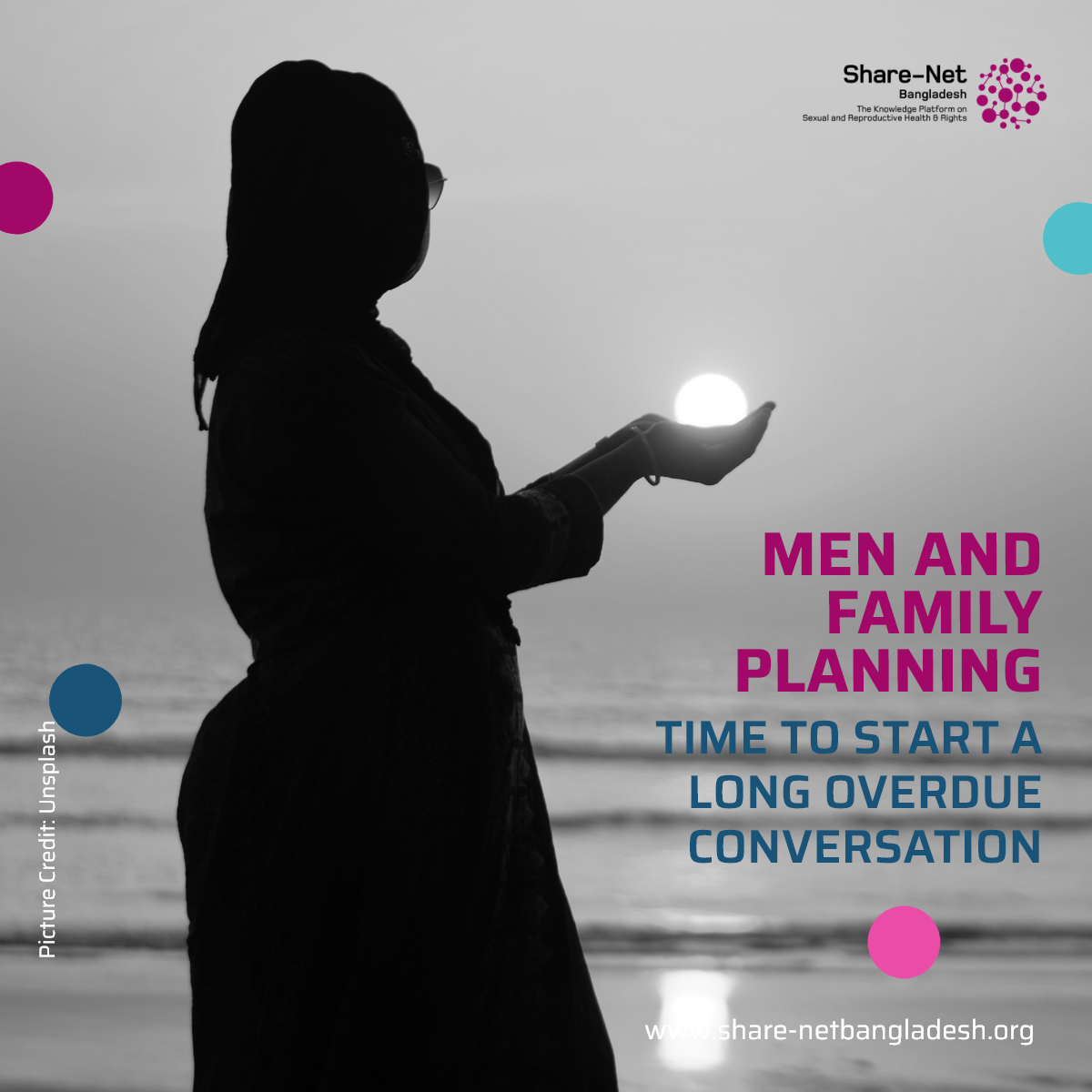Men and Family Planning: Time to Start a Long Overdue Conversation
Karima Begum, a 46-year-old domestic worker, is no stranger to the physical and emotional toll of contraceptive use. To avoid unplanned pregnancies, she takes contraceptive injections every three months, but this leaves her suffering from severe side effects. “My menstruation cycle changes, leading to skipped periods, heavy bleeding, and other health issues that disrupt my work,” she shared. Her husband, despite being aware of her struggles, refuses to take any responsibility for family planning, believing contraception is solely a woman’s duty.
Karima’s story highlights a much larger issue in Bangladesh, where family planning is overwhelmingly seen as the woman’s burden. A 2020 study by Nijera Kori revealed that 96% of male respondents believed birth control was solely a woman’s responsibility, a viewpoint that mirrors the experiences of many women like Karima across the country.
This mindset is further reflected in the data from the Bangladesh Demographic and Health Survey 2022, which shows that only 8% of contraceptive use in the country is attributed to men. Methods like condoms and no-scalpel vasectomy (NSV), which are painless and have no side effects, remain largely underutilised by men. Instead, the responsibility falls on women, who must often endure the side effects of hormonal methods such as contraceptive pills and injections, including weight gain, mood swings, and irregular menstruation.
The reluctance among men to participate in family planning is prevalent across all social classes. Many men express concerns that using contraception, particularly long-term methods like vasectomy, would make them physically weak or harm their masculinity. Fahim Hossain, a 35-year-old businessman, shared that he and his peers view vasectomy as a threat, with some even joking that it turns men into “hijras” (a derogatory term referring to the transgender community).
This unwillingness is not just a social issue but a public health challenge, deeply rooted in cultural misconceptions about gender roles and masculinity. Sexual and reproductive health and rights (SRHR) advocates stress the need for shared responsibility between partners when it comes to family planning. Yet, many men, like Aminul Islam, a street vendor, avoid the topic entirely. “That’s women’s stuff,” he said. He has never used contraception and is unsure what method his wife currently relies on.
Experts emphasise that increasing male participation in family planning is crucial for improving SRHR outcomes. Monjun Nahar, head of advocacy at Marie Stopes Bangladesh, advocates for the promotion of non-hormonal methods like condoms. “It’s a safer option and also protects against sexually transmitted diseases,” she said. However, changing deep-seated cultural norms requires more than just offering contraceptive options. Men need to be encouraged to be responsible partners, providing psychological support and sharing the burden of family planning.
Efforts are being made by the Directorate General of Family Planning (DGFP) to address this issue, including raising awareness through TV programmes, radio advertisements, and other media. Abdul Latif Mollah, Director of the Information Education Motivation Unit at DGFP, highlighted the need for innovative approaches to engage men in family planning conversations.
However, without broader social change, the perception that family planning is solely a woman’s responsibility will persist. As long as men continue to sidestep their role in sexual and reproductive health, women like Karima will continue to bear the burden, enduring the physical and emotional consequences of contraceptive use alone. Family planning is not just a women’s issue—it is a shared responsibility that both partners must embrace for the well-being of families and communities.
Source: The Daily Star
Picture Credit: Ashraful Haque Akash/Unsplash


